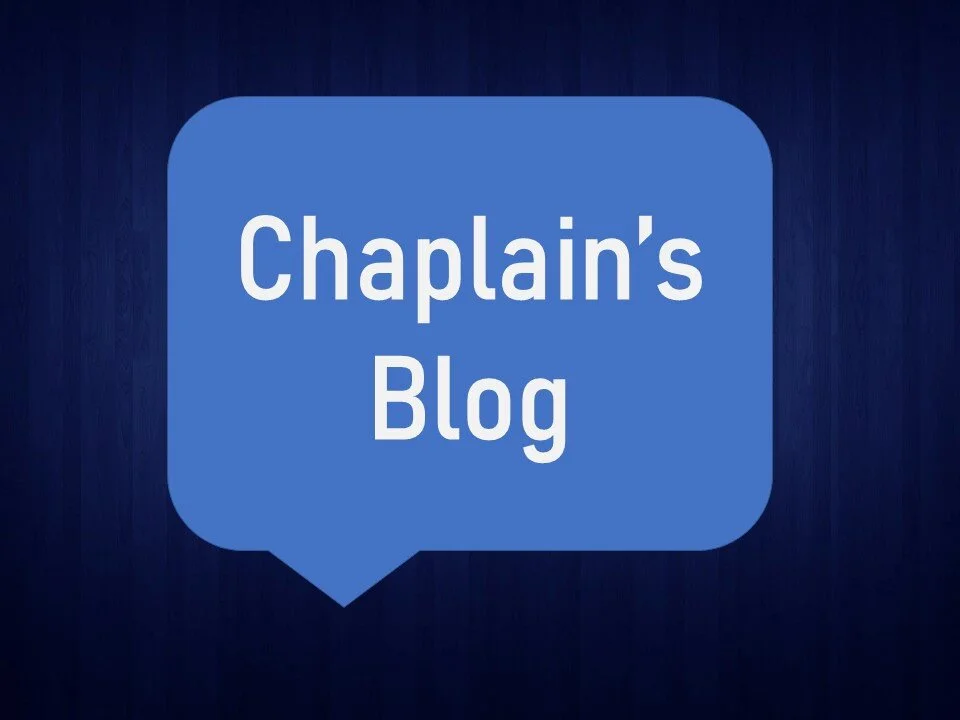Notes from the Front: Have the Conversation
Yesterday (April 16) was National Healthcare Decision Day (yes I’m late posting this!) This is a day in which people are encouraged to complete an Advance Directive so that their wishes are honored should something medically catastrophic occur. We live in a death-denying culture in which most people avoid talking about end-of-life. According to numerous surveys, approximately 90 percent of people say they want to discuss their end-of-life wishes and yet only 30 percent of people actually do.
That is a huge gap and indicates there is an enormous need to have these important conversations. The recent COVID-19 pandemic has many people pondering their mortality in new ways. As a nation, we watch the state, national, and worldwide death counts rise each day. People who were relatively healthy can rapidly find themselves on a ventilator fighting for their life. The time to make your advance care plans is before you need them. As a hospital chaplain, I cannot stress enough how important an Advance Directive is. Personally, I consider it one of the “big three” legal documents everyone should have: A Will, a Power-of-Attorney, and an Advance Directive.
An Advance Directive makes it clear to your family exactly what you want…and what you do not want. This can give you tremendous peace of mind. It also can give your family peace of mind that they are following your wishes. Additionally, having your wishes in writing greatly reduces the chance of conflict in your family. I have seen families tear themselves apart arguing over medical decisions for a loved one. An Advance Directive could have prevented these family brawls.
What exactly is in an Advance Directive? Each state has its own form, but all Advance Directives essentially do the same things.
First, you name someone your trust to make your medical decisions if you cannot speak for yourself due to your medical condition. The title of this decision-maker varies from state to state. In Georgia, it is called your healthcare agent and in Alabama, it is called your healthcare proxy. This decision-maker is expected to make decisions based on their understanding of your wishes and in your best interest. It is important to note that without an Advance Directive, the doctors will turn to your legal next-of-kin to make decisions. For most people, this is exactly what they want and works for them.
Each state defines its legal next-of-kin hierarchy, but generally, they begin similarly. In Georgia, the spouse is the first choice. If there is no spouse (or the spouse is incapacitated), all grown children (equally) become the next-of-kin. If there are no grown children, next in line are parents. If there are no parents, it falls to siblings (equally).
We live in a fallen world and sometimes life gets messy. Frequently, next-of-kin is NOT what a person wants. Some people are separated but not legally divorced. Parents are estranged from their children. Sometimes people will tell me their children are wonderful, but one child has a better temperament for making medical decisions. One gentleman I worked with didn’t want to emotionally burden his wife with making hard medical decisions and named his pastor as his decision-maker. It all boils down to this: You know your family, friends, and situation better than anyone else. Put your wishes in writing so the doctors are talking to the person YOU want them to talk to.
The second major component of an Advance Directive has to do with what treatments you would want or not want in two specific scenarios. The first scenario is if you suffered a severe brain injury and were in what doctors felt was a permanent coma. The second scenario is if you are at the end of a terminal disease or condition and the doctors felt your death would likely come soon.
You indicate whether you would want CPR, life support (ventilator), a feeding tube (surgically implanted in your belly), and IV fluids. Wording varies by state, but typically you can choose all of these, none of these, or some of these.
These are very personal decisions. Some people want every machine and medicine used to keep their body alive as long as possible, even though quality of life is poor. Others feel those aggressive treatments lead to unnecessary suffering and do not want them. They choose the comfort-focused option that treats any symptoms causing distress and allows a natural death to occur. Some people have strong feelings about one treatment or another and customize their preferences. Again, it is a personal choice.
However, without an Advance Directive, your family may be left guessing what you want to be done or not done. This can lead to significant mental anguish for your loved ones, or possibly conflict. Completing an Advance Directive can be a gift to yourself and your family. (Once completed, the document will need to be witnessed by two people – check the witness restrictions carefully.)
My mother was diagnosed with cancer and died in 2013. She had an Advanced Directive and ensured we talked about it. I will never, ever say it was easy watching my mother die. However, at every step of that journey, I had peace of mind that I was doing exactly what my mother wanted. This was possible because she thought about it. We talked about it. And she wrote it down.
Many of you are at home sheltering in place during this COVID-19 pandemic. You have the time. I encourage you to have the conversation with your family and complete an Advance Directive.
Resources:
The AARP website has the Advance Directive form for each state: https://www.aarp.org/caregiving/financial-legal/free-printable-advance-directives/
The Conversation Project is another great resource: https://theconversationproject.org/

